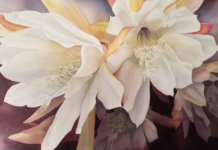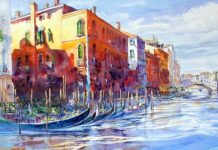You were honored by the American Watercolor Society with membership at just 30 years old. Have you always known you wanted to be an artist?
I can’t say I’ve always known I wanted to be an artist. There was an evolution that led me this direction.
I failed art in high school, although my high school art teacher was one of the best I had. I left high school early to take advantage of a scholarship after winning awards at the International Science and Engineering Fair, and took drawing and watercolor classes as electives. I fell in love with watercolor in college and abandoned other pursuits.
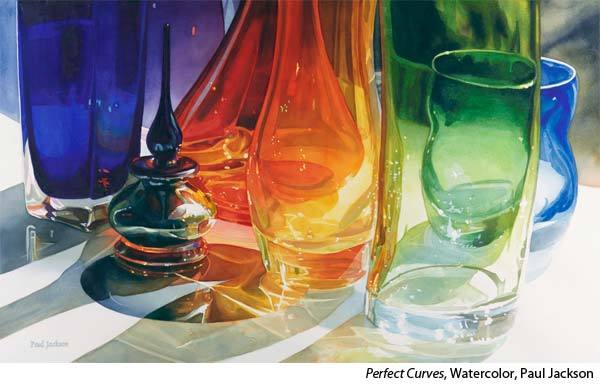
How did you make art a career?
After college I was hired as art director for a regional magazine. It was a great experience for the three months before the magazine went bankrupt, leaving me with few options. So I started peddling my paintings at art festivals.
I eventually made my way to grad school, which did little for my growth as an artist. The sales I made at art festivals forced me to produce new work constantly, which is where real growth happened. I had to learn the presentation and display aspects of the business to be able to afford framing my work, and learned business skills along the way as well.
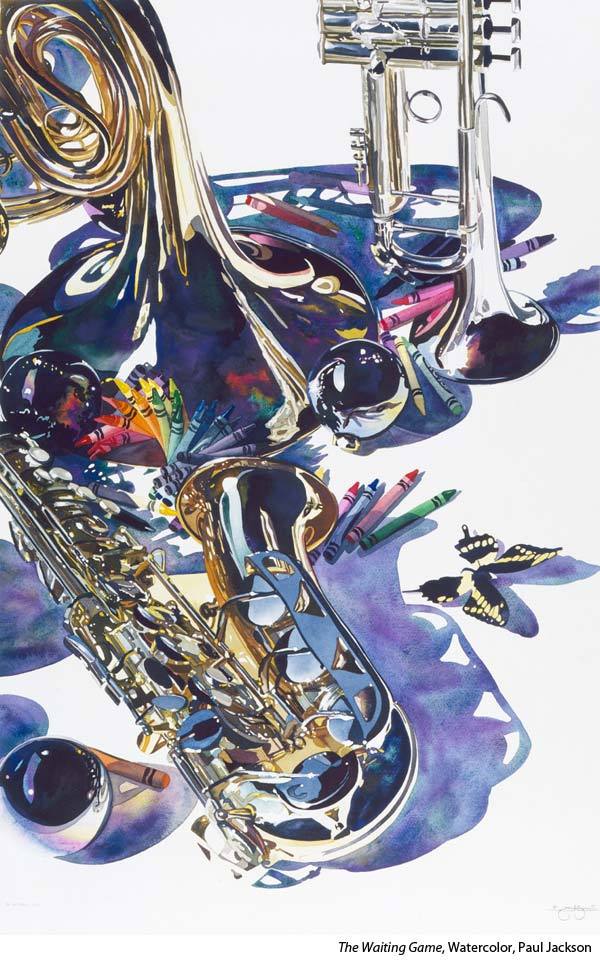
What advice would you give to artists who want to do art full time?
I have only really worked as an artist or art teacher. Initially I made a living selling my work at art festivals. I did 40 shows a year for a decade. I got a lot of exposure and made connections across the country. It’s a great lifestyle if you are young and single, but gets tougher as you get older and more committed to family and home.
To replace art festivals as my primary income, I wrote an instructional watercolor book, began teaching workshops, took a lot of commission projects and accepted whatever art-related offer that came along.
If you want to survive as an artist, take the “shotgun” approach and accept every offer that comes along. You might not like them all, but you will gain from the experience. It’s not an easy life all the time, and you will always be working, even when you are on vacation. It’s not really work if you love what you are doing though. It is, however, all consuming.
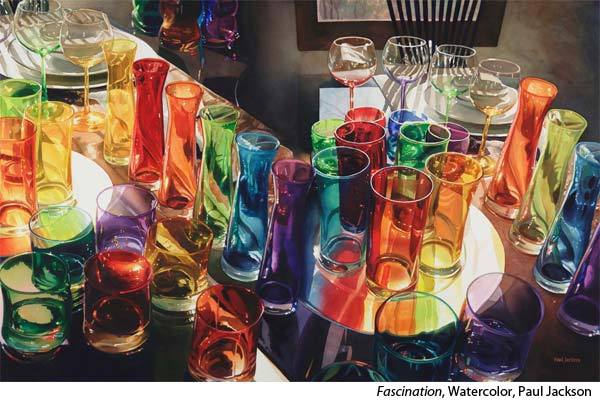
You have served as a judge for many national and international art competitions. What role do you see art competitions having on an artists’ personal growth, and what do you think is important for participants to remember when submitting a piece?
Competitions are a very important facet in your personal growth as an artist. You gain exposure to other artists work and are inspired by certain elements that each artist offers. You learn humility and patience through competitions as well.
All judges are different. You learn there is no right or wrong, only one person’s opinion. Some days all seems to go your way, other days you feel like the judge is an idiot. Either way you gain from the experience.
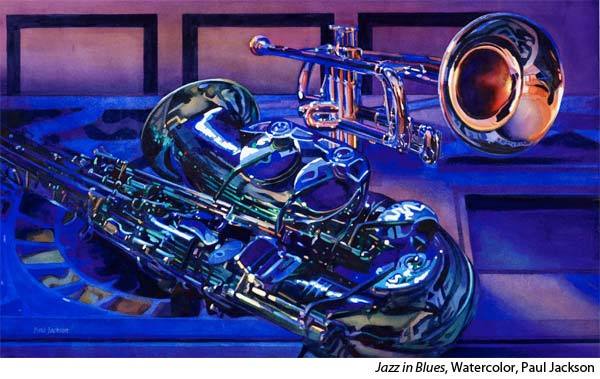
I am always baffled when artists enter work that mirrors mine in competitions that I judge. Just because I paint a certain subject doesn’t mean I’ll appreciate your take on the same subject. I appreciate originality more.
With art competitions you can’t bring expectations as a judge because you don’t know what you are going to get. What I am looking for is generally a visually dynamic image. Well crafted work tends to get my attention more than slap-dash or sloppy, although I am a huge fan of spontaneity and the appearance of splashed paint…when it is done well. I also love a great abstract, but I don’t see enough of them in competitions.
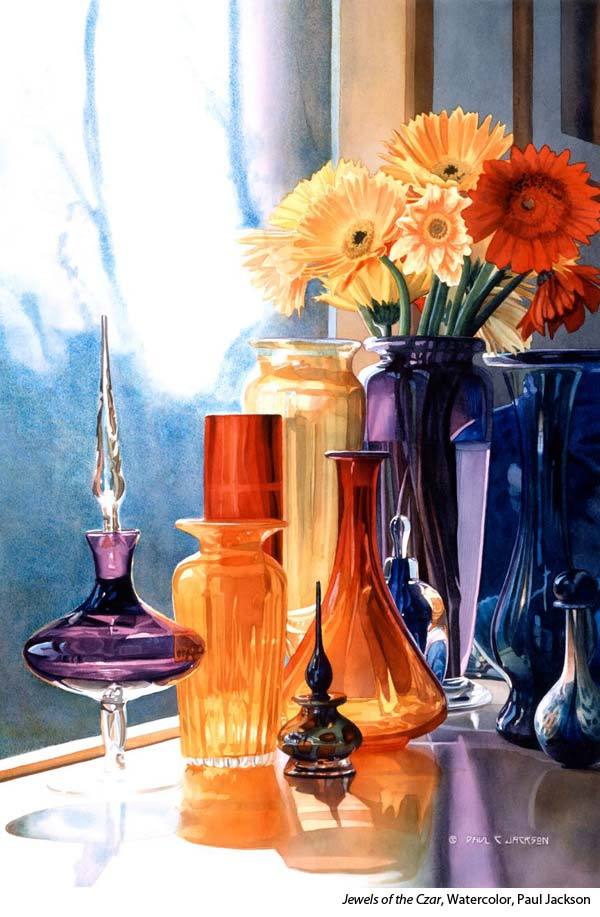
You love to travel. How is traveling important? What does it bring to you as a person and to you as an artist?
I am most alive when I am in a new environment. I see and experience things with the wonder of a child. Everything is exciting and inspiration seems to be around each corner. I can take only about six months of studio time before I get bored and tired of what I am working on. I need to refill the reservoirs of inspiration frequently to keep me motivated for more.
Experiencing other cultures is so much fun. Picking up bits of other languages, interacting with local artists and trying new things is what inspires me most. I absorb as much as I can from each adventure so that it can inform and color future paintings.
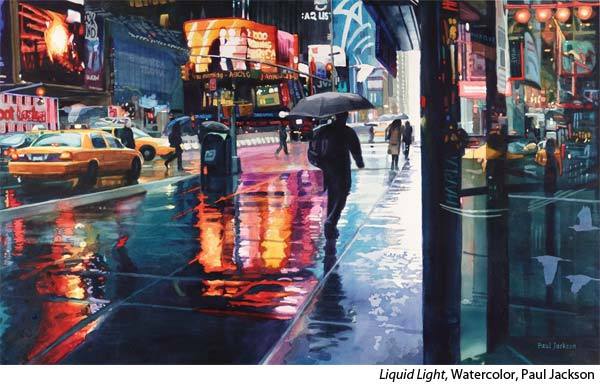
Learn more about Paul Jackson at his website, Facebook or Instagram page. Or one of four video workshops.
For more inspiring stories like this one, sign up for our free weekly e-newsletter.


